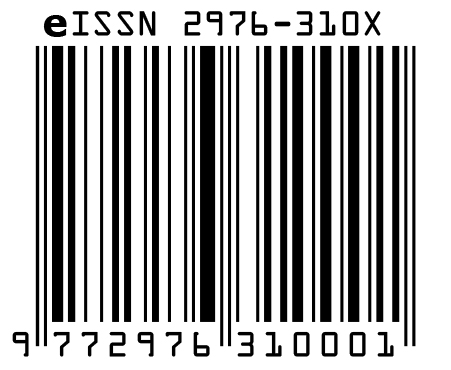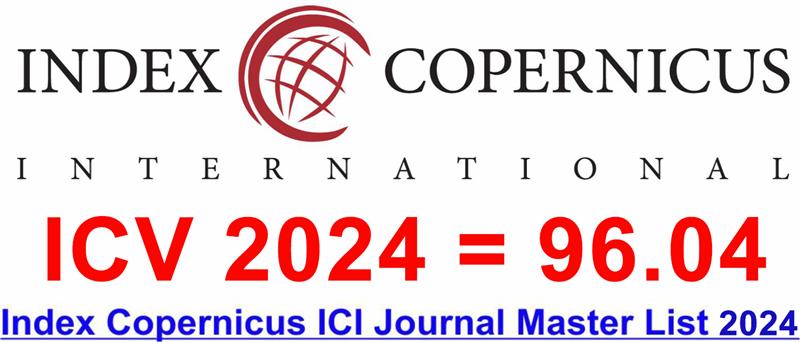Implementation of Digital Educational Technology, the Issues for Managerial Consideration
DOI:
https://doi.org/10.60072/ijeissah.2024.v3i01.005Abstract
The advent of Information Communication Technology (ICT) and the increasing popularity of digital systems have necessitated many educational institutions globally to transition towards using digital technology to facilitate learning and digital transactions with their stakeholders. This study aimed to identify the latent issues faced by students who use digital educational technology for learning and transactions. The study collected quantitative data from 210 students sampled from selected universities in Ghana. A survey questionnaire instrument with close-ended questions was developed and administered online. A descriptive statistical analysis was performed to find the modal frequencies of the identified issues to achieve the aim of the study. The findings suggest that the most pressing hidden concerns that need managerial attention when implementing digital systems for academic purposes are technological infrastructure, convenient access, and acceptability and adoption of digital educational technology. Digital educational technology offers convenience and traceability, making it attractive to students and stakeholders. However, the potential risks and drawbacks in the use of digital educational technology need attention from the management of educational institutions. This study enhances understanding of the use and issues of digital educational technologies for application in Management Information Systems research and practice. A further study should explore cross-border issues faced by international students who use digital educational technologies for the consideration of educational institution management.
Keywords:
Digital Technology, Digital Transactions, Education, ManagerialReferences
Akgun, S., & Greenhow, C. (2022). Artificial intelligence in education: Addressing ethical challenges in K-12 settings. AI and Ethics, 2(3), 431-440. DOI: https://doi.org/10.1007/s43681-021-00096-7
AlNuaimi, B. K., Singh, S. K., Ren, S., Budhwar, P., & Vorobyev, D. (2022). Mastering digital transformation: The nexus between leadership, agility, and digital strategy. Journal of Business Research, 145, 636-648. DOI: https://doi.org/10.1016/j.jbusres.2022.03.038
Bernhard-Skala, C. (2019). Organisational perspectives on the digital transformation of adult and continuing education: A literature review from a German-speaking perspective. Journal of Adult and Continuing Education, 25(2), 178-197. DOI: https://doi.org/10.1177/1477971419850840
Bukhari, S, A, R. (2021). Sample Size Determination Using Krejcie and Morgan Table. DOI: https://doi.org/10.13140/RG.2.2.11445.19687
Ferreira, J., Mueller, J., & Papa, A. (2018). Strategic knowledge management: theory, practice and future challenges. Journal of knowledge management, 24(2), 121-126. DOI: https://doi.org/10.1108/JKM-07-2018-0461
Goel, M., Sun, H., Jiao, W. B., & Schneeberger, K. (2019). SyRI: finding genomic rearrangements and local sequence differences from whole-genome assemblies. Genome biology, 20, 1-13. DOI: https://doi.org/10.1186/s13059-019-1911-0
Hai, T. N., Van, Q. N., & Thi Tuyet, M. N. (2021). Digital transformation: Opportunities and challenges for leaders in the emerging countries in response to COVID-19 pandemic. Emerging Science Journal, 5(1), 21-36. DOI: https://doi.org/10.28991/esj-2021-SPER-03
Koi-Akrofi, G. Y., Aboagye-Darko, D., Nyame, J., Gaisie, E., & Danquah, I. O. (2023). Students’ Acceptance of Learning Management Systems at the Peak of Covid-19 Pandemic by Employing a Modified Technology Acceptance Model. IJST, 16, 2451. DOI: https://doi.org/10.17485/IJST/v16i14.2451
Krejcie, R. V. (1970). Determining sample size for research activities. Educational Psychol Meas. DOI: https://doi.org/10.1177/001316447003000308
Madanaguli, A., Parida, V., Sjödin, D., & Oghazi, P. (2023). Literature review on industrial digital platforms: A business model perspective and suggestions for future research. Technological Forecasting and Social Change, 194, 122606. DOI: https://doi.org/10.1016/j.techfore.2023.122606
Oh, E. Y., & Zhang, S. (2022). Informal economy and central bank digital currency. Economic inquiry, 60(4), 1520-1539. DOI: https://doi.org/10.1111/ECIN.13105
Romero-Martínez, A. M., & García-Muiña, F. E. (2021). Digitalization level, corruptive practices, and location choice in the hotel industry. Journal of Business Research, 136, 176-185. DOI: https://doi.org/10.1016/j.jbusres.2021.07.032 [NOT USE IN TEXT]
Seshadrinathan, S., & Chandra, S. (2021). Exploring factors influencing adoption of blockchain in accounting applications using technology–organization–environment framework. Journal of International Technology and Information Management, 30(1), 30-68. DOI: https://doi.org/10.58729/1941-6679.1477
Sharif, M., & Pal, R. (2020). Moving from cash to cashless: A study of consumer perception towards digital transactions. PRAGATI: Journal of Indian Economy, 7(1), 1-13. DOI: https://doi.org/10.17492/pragati.v7i1.195425
Singh, S., & Srivastava, R. K. (2020). Understanding the intention to use mobile banking by existing online banking customers: an empirical study. Journal of Financial Services Marketing, 25(3), 86-96. DOI: https://doi.org/10.1057/s41264-020-00074-w
Singhraul, B. P., & Garwal, Y. S. (2018). Cashless economy–challenges and opportunities in India. Pacific Business Review International, 10(9).
Tulinayo, F. P., Ssentume, P., & Najjuma, R. (2018). Digital technologies in resource constrained higher institutions of learning: a study on students’ acceptance and usability. International Journal of Educational Technology in Higher Education, 15(1), 1-19. DOI: https://doi.org/10.1186/s41239-018-0117-y
Udam, M. U., & Mohammed, L. A. (2024). Cloud Resources Utilisation and Science Teacher’s Effectiveness in Secondary Schools in Cross River State of Nigeria. International Journal of Emerging Issues in Social Science, Arts and Humanities (IJEISSAH), 2(2), 79-90. DOI: https://doi.org/10.60072/ijeissah.2024.v2i02.008
Venkatesh, V. (2022). Adoption and use of AI tools: a research agenda grounded in UTAUT. Annals of Operations Research, 308(1), 641-652. DOI: https://doi.org/10.1007/s10479-020-03918-9
Vial, G. (2021). Understanding digital transformation: A review and a research agenda. Managing digital transformation, 13-66. DOI: https://doi.org/10.4324/9781003008637-4
www.datareportal.com/reports/digital-2024-ghana. Accessed in October 2024
























